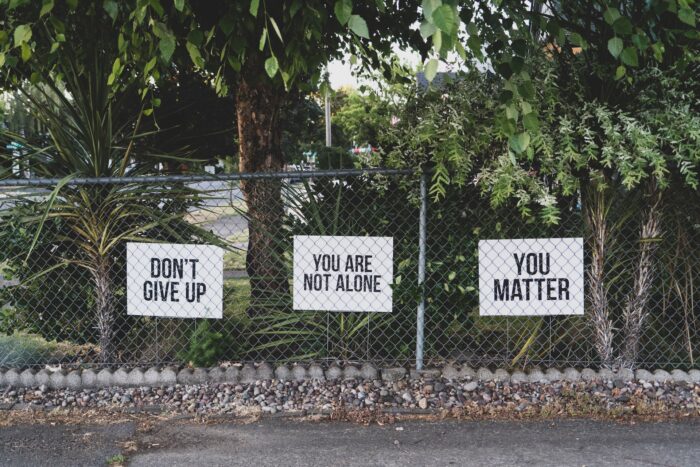
Coping after the death of a loved one can be hard. It doesn’t matter if it caught you by surprise or if you knew it was coming, it can be difficult to carry on with your everyday life.
It’s good to mourn and grieve, but you want to make sure that you take care of your mental health in the months and years following the funeral.
Get Face-to-Face Support

One of the best things you can do is get support after a loved one passes. Almost always that means scheduling an appointment with a therapist or a counselor. They can help you work through your feelings of grief, and they can also help you work through any unresolved issues you were unable to address while your loved one was alive.
Group therapy can also be effective. When you meet with others who have lost someone close to them, you will feel supported throughout your grief journey.
That’s not all. You may want to consider other forms of support as well. For example, if you believe your loved one died because of someone else’s negligence, you may want to consider meeting with a wrongful death attorney. Not only can they help you get compensation, but an attorney can also, “provide you with the advice and guidance you need to make the right calls”, as McGuire Law Firm states.
Allow Yourself to Feel and Process All Your Emotions
Grief isn’t just one emotion. It can take many by surprise because there are many feelings you may experience as the days go by. You might feel overwhelmingly sad one day and angry the next that your loved one left you so soon.
You should allow yourself to feel all of your emotions, as each and everyone is normal. Try to feel each emotion without guilt, as is often the case if you’re mourning the loss of a loved one and you find yourself smiling or laughing. You will experience periods of sadness, happiness, and everything in between. By allowing yourself to feel each emotion as it comes up, you can work through each one without repressing it.
Plan Distractions

As time goes on, grief can sometimes come out of nowhere, but more often, you know it’s coming. You might be getting anxious as your loved one’s birthday or death day approaches, or you’re gearing up to experience an important milestone that your loved one would have attended if they were still around.
When you know these events are around the corner, plan ways to distract yourself so you don’t spend the day under a dark cloud. That might mean signing up for a retreat, taking a cooking class, planting a garden, or planning a movie marathon. It doesn’t matter what you do as long as it’s something that can distract you from what would otherwise be a very difficult day.
Start a New Tradition in Remembrance
Distracting yourself can be a great way to get through a difficult day, but someday you may decide you want to honor your loved one without distractions. Starting a new tradition can help you turn your grief into joy.
Christmas is a great time to remember loved ones with a new tradition, but you can create a tradition on a special anniversary or a season of the year. A few ideas include:
- Bake your loved one’s favorite cookies for Christmas
- Create a memory capsule, bury it, and open it on a special date
- Visit your loved one’s gravesite once a year
- Plant a garden with your loved one’s favorite flowers or vegetables
- Make a donation each year in your loved one’s name. The good start with this would be organizations such as ME to WE.
Build Healthy Habits Into Your Routine

Getting through the day to day can be difficult after a loved one has passed away. Building healthy habits into your routine can really help.
Did you know that 45 percent of our daily activities are habitual? When you choose those habits carefully, you can ensure that you’re taking care of your mental and physical health without giving it much thought.
If you tend to reach for junk food in the evenings, start a habit of eating an apple with a mixture of chocolate and peanut butter. Ensure you get enough sleep every night by starting a nightly routine of taking a bath and reading a book. By making things like these a habit, you will be more likely to do them, and you’ll notice a difference in how you feel.
Avoid Unhealthy Coping Mechanisms
Planning distractions, starting new traditions, and creating routines are all examples of healthy coping mechanisms, but that doesn’t mean unhealthy coping mechanisms can’t weasel their way into your life.
Know the unhealthy coping mechanisms that can sneak into your everyday life so you can avoid them. They include very serious activities, like drinking too much alcohol or doing drugs, but they also include watching endless hours of TV, sleeping too much, or overeating.
Talk With Others About Your Loss

Talking about death is difficult, but that doesn’t mean you shouldn’t do it. Even if it makes you uncomfortable, and it makes others you’re talking to uncomfortable at first, it’s important to talk about your loved one’s life, their death, and how it has affected you.
If you’re worried about bringing it up, start by bringing up the topic with others who knew your loved one. Chances are, they are struggling with their loss too.
When approaching others, consider asking if you can talk about the loved one you have lost. It gives the person you’re speaking with the chance to prepare themselves for the conversation so it doesn’t feel like it came out of nowhere, and it will make you feel better about bringing it up.
Life can be difficult and complicated in a variety of ways after a loved one has passed. It’s important to take care of yourself. With these tips, you can cope with the changes to your life in a healthy way so you can eventually carry on with more joy in your heart than grief.








